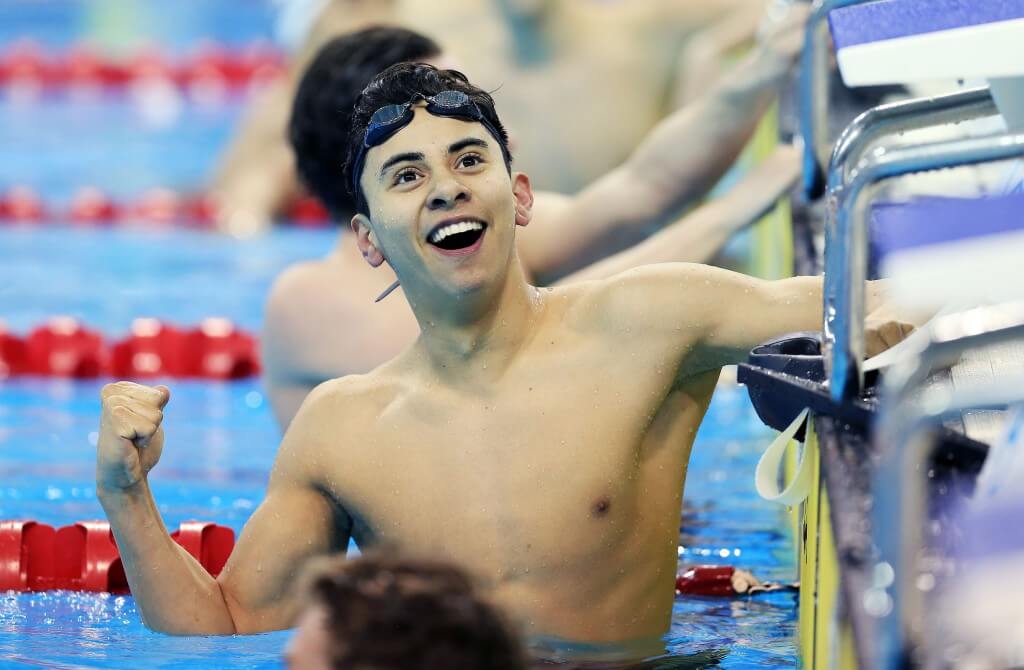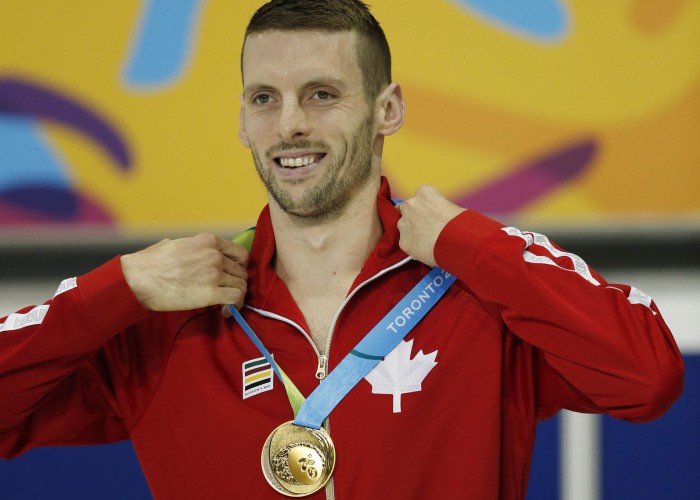Canada’s Olympic Squad: A Wave of Young Talent

By Cody Evans, Swimming World College Intern
Over a month ago at Canadian Olympic Trials, we saw many great races. If you didn’t notice, these exceptionally fast times were swum primarily by swimmers under the age of 25. When we look at athletes swimming for Canada this summer in Rio, we see that the average age of the Olympic team is a youthful 21.
TWENTY-ONE! This means the vast majority of these swimmers are still in their college years. On the team there are only five men and women who are 25 or older; Ryan Cochrane being the only male in that group of “older” swimmers. By the looks of things, this is one of the youngest teams Canada has ever brought to the Olympics.
We especially see it on the men’s side, where the ages of the small group of seven men going are 18, 18, 20, 21, 22, 23 and 27. John Atkinson, Director of High Performance at Swimming Canada, explains how swimming “goes through cycles,” indicating that there may be an older team, like in London, but then many athletes retire and for the next games, Rio, the team is now younger.
The only veteran to the men’s team is Cochrane, who has been to the past two Olympics and is one of the most experienced on the team. Experience at an international level is key, particularly in a sport like swimming.

Photo Courtesy: Erich Schlegel/USA Today Sports Images
Why is this? Why is the vast majority of Team Canada for this summer’s Olympic Games no older than 25?
I thought it might be due to the sport’s funding, but it’s not so easy to pinpoint. Atkinson explained that Swim Canada takes a targeted approach in the way they use their funding. They try to use it in the best way possible, of course, in hopes of helping produce results at international level competitions.
The thing Swimming Canada is interested in is if the athlete is improving or not. It’s hard for Swimming Canada to designate money and also the athlete to continue swimming when they’re not improving. Atkinson reassures these thoughts, stating that “once an athlete has stopped improving for a number of years and perhaps they are not making headway in the world rankings and not breaking into the top 16 in the world, it becomes more challenging for them to continue.” This may be the main reason for why we see younger groups of swimmers this summer, possibly due to the lack of improvement from the older swimmers, resulting in their retirement.
Swimming Canada works very hard to keep swimmers improving. This improvement drives a swimmer to work hard and perform well. Sometimes though, that improvement just doesn’t happen. Swimming Canada tries to keep swimmers in the sport for as long as possible, but in the end, retirement is a personal decision. The past four years have seen many Canadian swimmers hang up the goggles, but we continue to witness growing depth in the sport. Some of the first place times at World Championship Trials in 2013 would have been eighth at Canada’s Olympic Trials.
From this we can now see and understand better as to why the senior national teams are filled with younger swimmers. Not necessarily due to a lack of funding or because the athlete is too old but because as Atkinson addresses “it’s not about being young, it’s about improvement.” It’s most important for Swimming Canada to see a constant line of progress from the athlete, no matter their age.




Given the number of varsity age swimmers attending Trials and making the Olympic team, perhaps some thought could be given to the timing of the Trials selection meet. The majority of varsity swimmers are right in the thick of final exams during the typical April Trials time frame. This puts a great deal of stress and pressure on young athletes and does not allow them to perform to their utmost capabilities either athletically or academically.
It sounds to me like a ready alibi for failure in Rio….We shall see!!!
Awesome read!! Well done
It was particularly disappointing to see so many of the male athletes just miss the qualifying standard and with no B Standard being allowed our team is very small considering we have many swimmers that could have achieved the standard in time for Rio. It is fair to say that not all swimmers are fortunate to train in a 50m pool and as this meet was in March it was considerably close to the start of the LC season. Personally I think it is making the Olympics not such a great event and if I were in there shoes maybe I would retire due to the disappointment and timing of the program. It would have been interesting to see if the trails were held at least a month later and then see who would have gone. It may be argued that it is better to have a smaller team with the top times than allowing the B standards go through but if they had timed the trials differently we hey will never know.